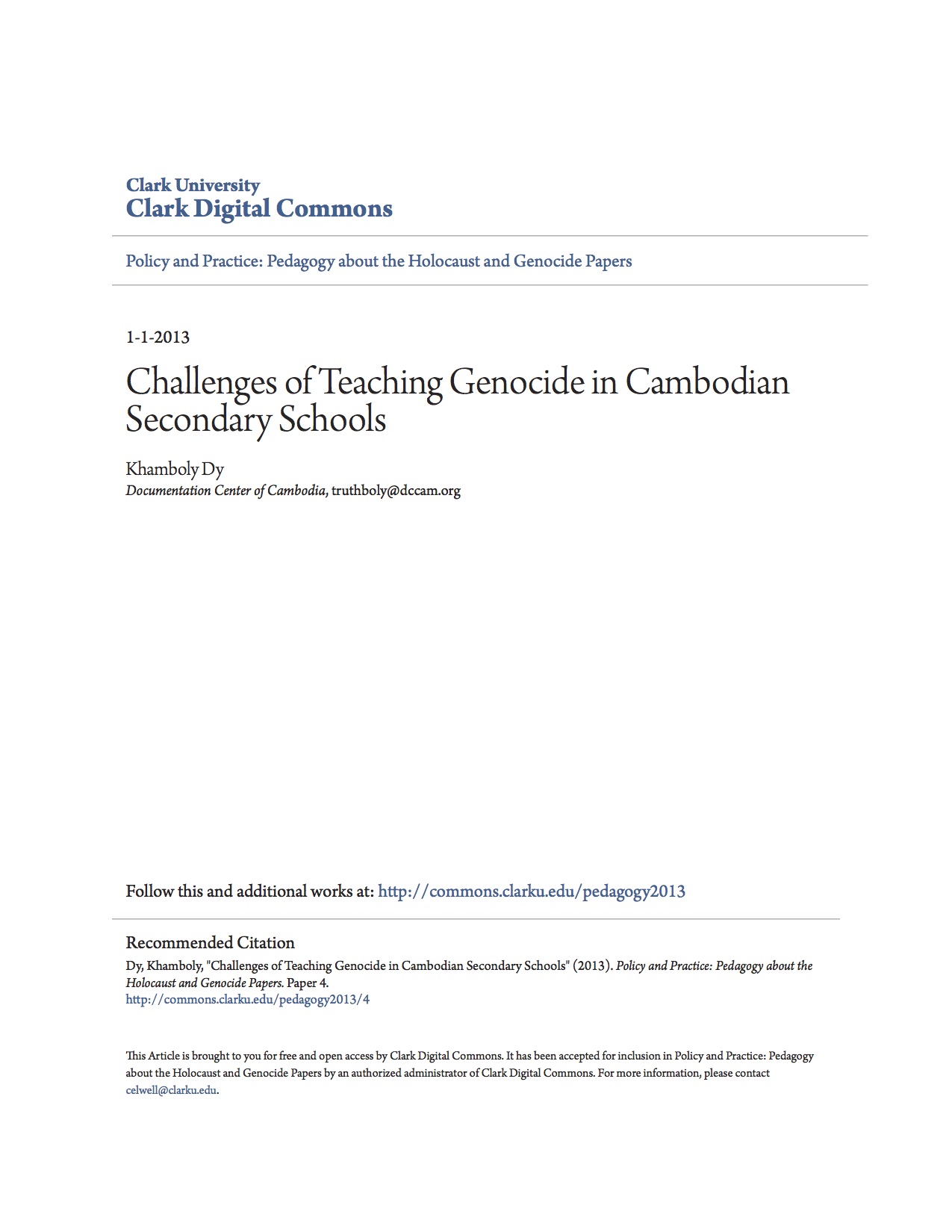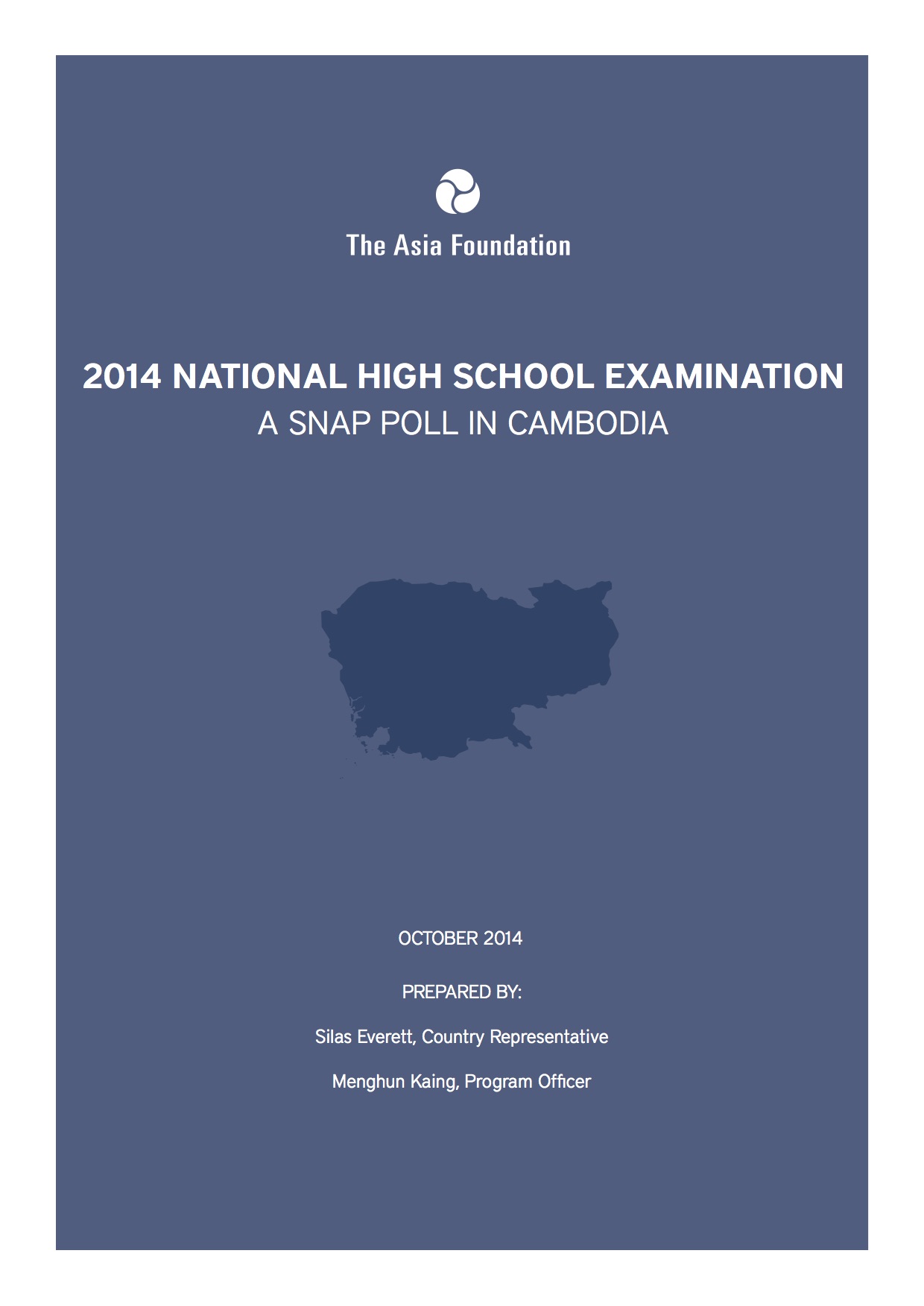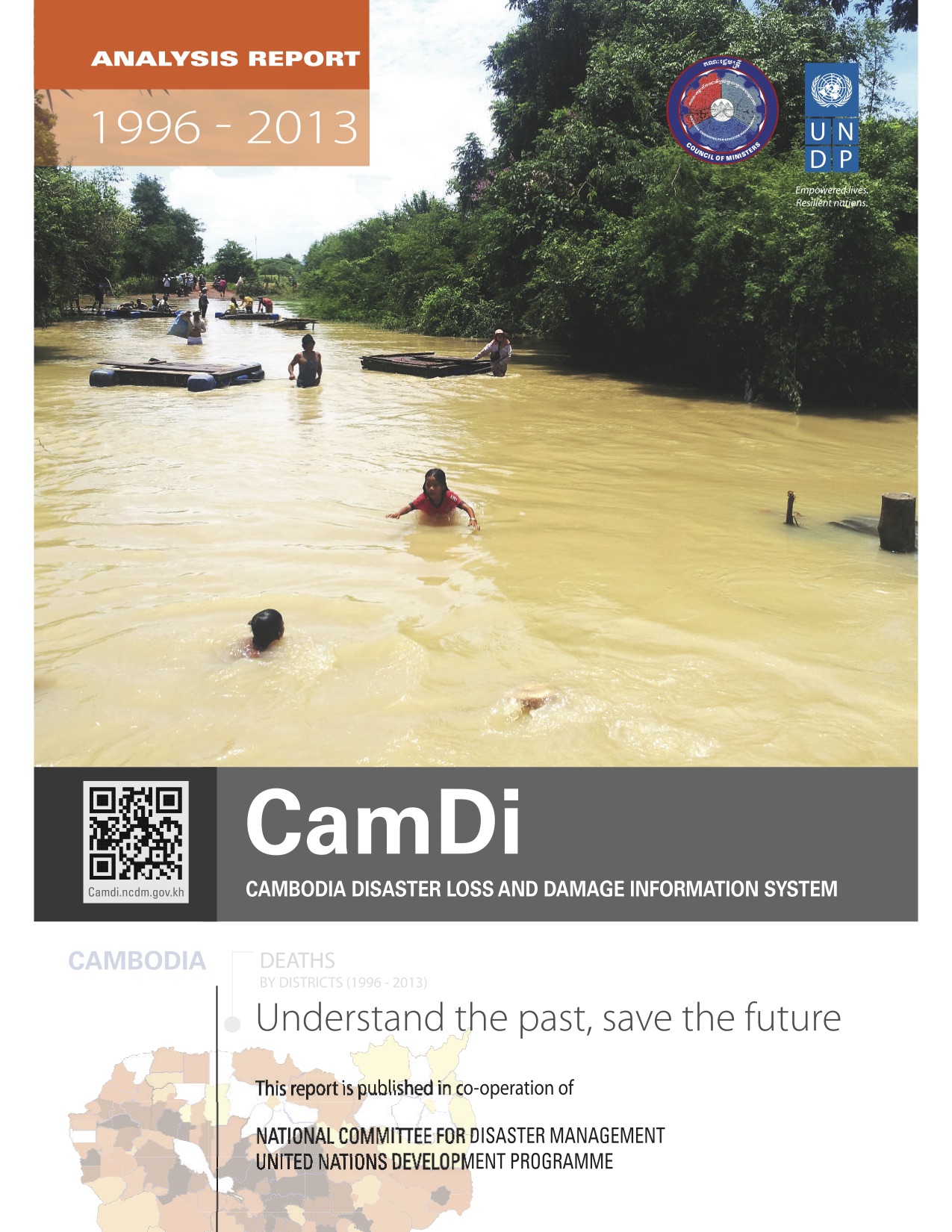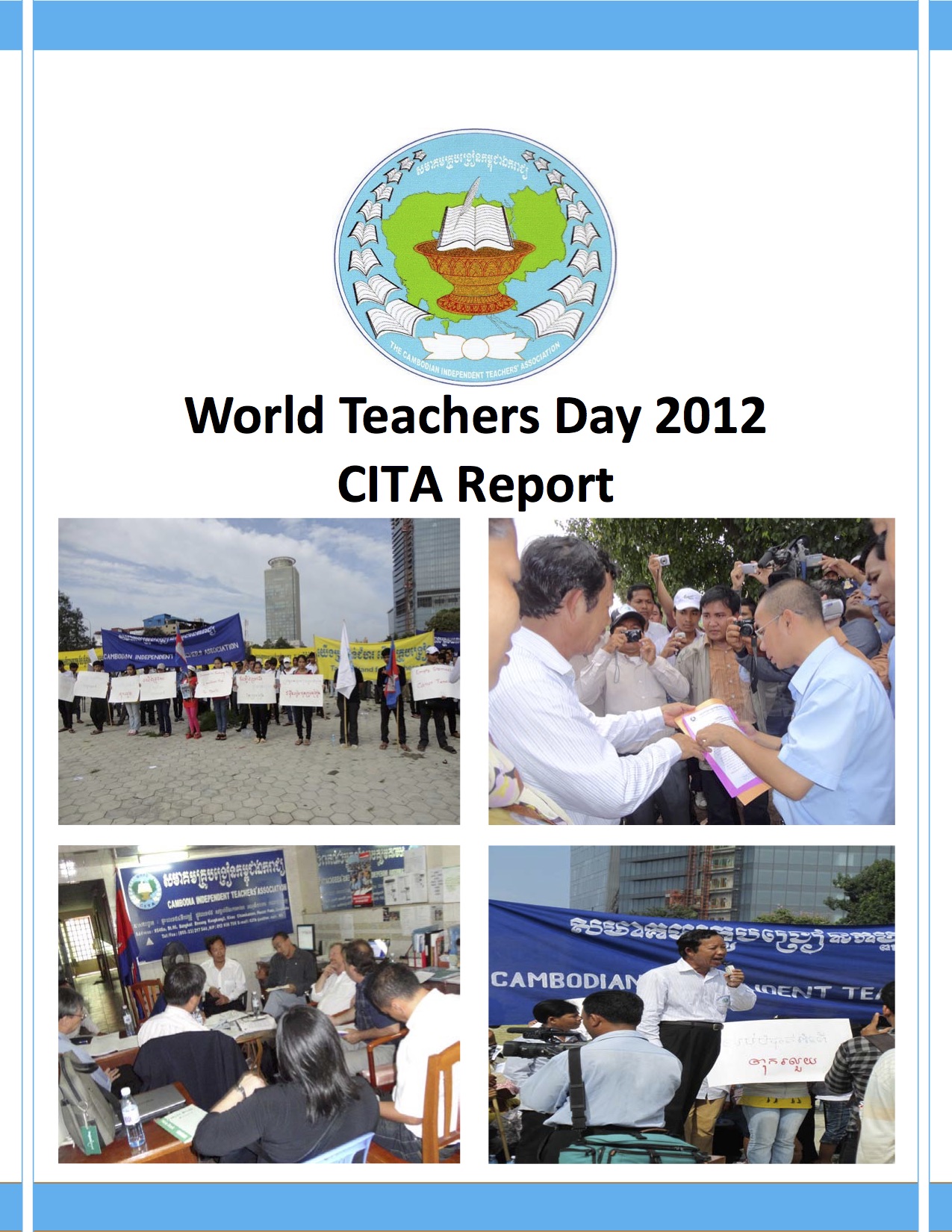Latest Entries
Challenges of Teaching Genocide in Cambodian Secondary Schools
Publication Year: 2013 / Sources: Clark UniversityThis paper examines the politics of teaching Khmer Rouge (KR) history from 1979 to 2012—the conditions of which fluctuated through the political regimes and atmospheres in Cambodia. The paper also briefly examines the background of the Cambodian education system since 1979, which has strong implications on the teaching of KR history. Past attempts at teaching KR history reveal a gradual transition from a politically-charged KR history curriculum to one that emphasizes an objectivity that is predicated on accuracy and the absence of political bias. Immediately after the collapse of the KR regime in 1979, KR history was taught as propaganda. The teaching of KR history disappeared during the 1990s as a compromise for national reconciliation, political stability, and peace. In the early 2000s, the teaching of KR history was marginalized by political conflicts. From 2007, the teaching of KR history has turned toward an emphasis on objectivity genocide education, in which the teaching of KR history emphasizes national reconciliation, peace building, and genocide prevention. This paper examines the social, economic, political, and pedagogical challenges to teaching genocide in Cambodia over the past three decades since the fall of the KR regime in 1979. It also explores how history, politics and political conflicts determine and/or influence how post-conflict countries like Cambodia teach genocide.
2014 National High School Examination
Publication Year: 2014 / Sources: The Asia FoundationFollowing the July 2013 election where the Cambodian People’s Party (CPP) gained a surprisingly narrow victory over the opposition Cambodian National Rescue Party (CNRP), the newly formed government led by the ruling CPP promised a raft of new reforms. In one such reform effort, the Ministry of Education Youth and Sport (MoEYS) increased the monitoring of the annual national high school examination, which took place on August 4-5, 2014. About 90,000 high school students nationwide sat for the exam. With the increased monitoring, the passing rate fell to 25.7 percent from last year’s 86 percent. The low passing rate prompted MoEYS to announce a second exam scheduled for October 13-14. The introduction of MoEYS’ reform effort drew media debate over whether or not the increased monitoring was positive for both the government and for the improvement of education in Cambodia overall. In order to gauge public opinion, The Asia Foundation conducted a snap poll, which took place between September 13 and 19, 2014.
Cambodia Disaster Loss and Damage Information System
Publication Year: 2013 / Sources: National Committee for Disaster Management, UNDPCambodia is exposed to natural and human-induced disasters such as floods, droughts, storms, lightening, riverbank collapse, fire, pest outbreak and epidemic. Floods, storms and droughts are more localized and seasonal, while lightening, river bank collapse, fire and epidemic are less frequent. Major floods occurred in 2011, affecting 18 out of 24 provinces and claiming 250 human lives; approximately 50 percent were children. This flood affected more than 1.77 million people (13 percent of the population). Climate change is expected to increase the frequency, intensity and severity of these natural events, which could turn into far worse disasters. The National Committee for Disaster Management (NCDM) was established in 1995 to manage disasters in Cambodia. NCDM’s role is to monitor, evaluate, collect, analyze and administer the disaster risk data, and report it to the Royal Government of Cambodia (RGC) to issue principles, policies, circulars, guidelines and measures for disaster manageent, as well as putting forward the resources for emergency response operations.
Addressing the Gaps in Health Services Delivery in Cambodia
Publication Year: 2014 / Sources: Cambodia Development Resource Institute (CDRI)As one of the five strategic areas of the Health Strategic Plan 2008-15 (HSSP2), health system service delivery “…supports the key output of the public and private health sector and is the means through which the ultimate outcomes of the HSSP2 will be achieved” (MOH 2008: 30). The goals of the health service delivery strategy are decentralised service delivery, improved quality in service delivery and management, promotion of effective public-private partnerships in service provision, and greater community engagement. Core inputs seen as necessary for health service delivery include financial resources, competent healthcare staff, adequate physical facilities and equipment, essential medicines and supplies, current clinical guidelines, and operational policies. This paper focuses on current research and suggests future directions for research that can help improve the organisation and quality of health service delivery in Cambodia.
World Teachers Day 2012 CITA Report
Publication Year: 2012 / Sources: The Cambodian Independent Teachers' Association (CITA)On October 5, 1966, UNESCO and ILO published the Recommendation Concerning the Status of Teachers. In 1994 UNESCO proclaimed that October 5th would be celebrate as World Teacher’s Day; a day on which the contributions of those working in the field of education would be recognized all over the world. The theme chosen for World Teachers Day 2012 was “Take A Stand for Teachers”, this theme was used by teachers’ unions around the world to address issues that affect teachers in within their education sectors. In Cambodia, the Cambodian Independent Teacher’s Association (CITA) organized national celebrations to recognize World Teachers Day 2012. CITA was established in March 2000 and formally registered with the Ministry of the Interior (MoI) in July 2001. CITA is the only independent, nonpartisan, non-profit, non- governmental teachers’ union in Cambodia, and represents close to 10,000 teachers through 21 branches across the country. Through national and international campaigning, CITA advocates for the improvement of the condition and status of teachers, and lobbies the Royal Government of Cambodia (RGC) to recognize teachers’ rights.





